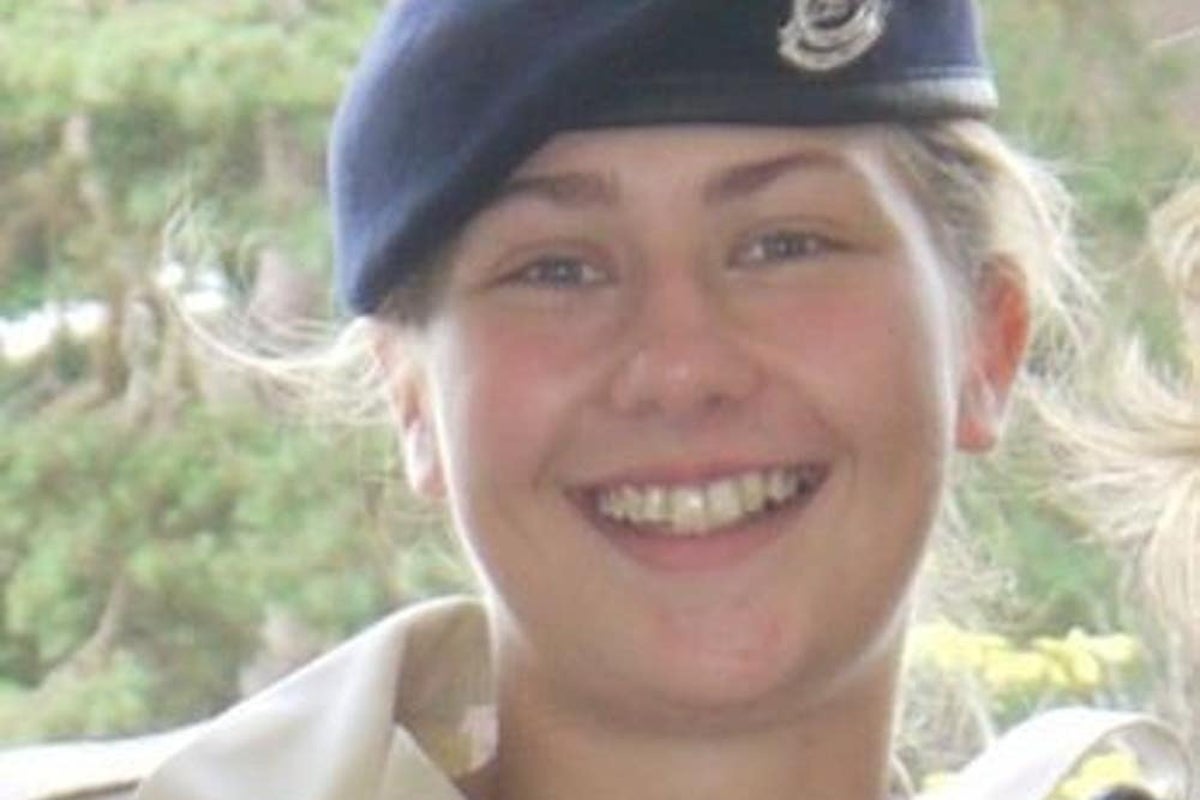
An Army colour sergeant told an officer cadet she had “had enough male company” a day before she was found hanged at Sandhurst military academy, an inquest has heard.
Olivia Perks, 21, was discovered dead at the elite military training school in Berkshire on February 6 2019.
An earlier inquest hearing recorded her provisional cause of death as asphyxia due to hanging.
Warrant Officer (Class 2) Carl Lamb, who was then a colour sergeant, told her inquest at Reading Town Hall he made the remark in front of mainly men who were asking her questions about what happened between her and a non-commissioned officer named only as Colour Sergeant Griffith, whose room she had been found in after the Falklands Ball on 1 February, 2019.
WO2 Lamb claimed he said it “because of the rumours that were said at the time about what happened”.
He added: “One hundred per cent I should not have made the comment.”

He told the hearing that colour sergeants would not be expected to know about officer cadets’ welfare in detail despite being the first “significant link” between them and the chain of command.
He was not aware of a suicide attempt made by Ms Perks during a Royal Engineers visit in July 2018 or her behaviour while drunk on a trip to Normandy in November that year until after she died.
He said: “We knew if someone had a family member pass away. That was probably the extent of where I knew about welfare, unless someone had gone through a hard time with their partner and said, ‘Can I have the afternoon off, can I have Friday off?’”
Major Thomas Rossiter, who was Ms Perks’ adjutant at the academy’s New College, told the inquest he had not recognised her banging her head against a wall after the Falklands Ball as self-harm.
He said: “I should have made that connection. At that point in time I didn’t have the knowledge or professional expertise to make that connection or draw that conclusion.”
He told a colleague Ms Perks needed to go to the medical centre after the incident, which he claims stemmed “consciously” from a concern for her physical welfare but he “subconsciously” knew something “wasn’t right” with her mental health.
He also said he did not see Ms Perks between the ball and her death and had little understanding of the academy’s vulnerability risk management (VRM) policy.
Asked by counsel to the coroner Bridget Dolan KC whether there was any expectation on him to look at the policy, he replied: “No.”
Ms Dolan asked if the unit welfare officer being away would have required him to look at the VRM policy, Maj Rossiter said: “I didn’t understand what the VRM exactly was or what its purpose was.”
Asked by coroner Alison McCormick whether he understood the required authority on welfare was the welfare officer, he replied: “That’s correct.”
She asked if he understood that to mean he “didn’t have to do anything” around the policy and he replied: “Yes.”
He added: “That was a professional failing. I should have had the professional curiosity to know that doesn’t sound right and I should have had more of an active involvement in that.”
He also admitted to a “professional failing” by not making further enquiries about the policy and admitted nothing was done “in reality” when Ms Perks’ risk was raised from amber to red after the ball.
The inquest continues.
For anyone who needs help, Samaritans can be contacted for free on 116 123, emailed at jo@samaritans.org, or visit www.samaritans.org to find your nearest branch.







